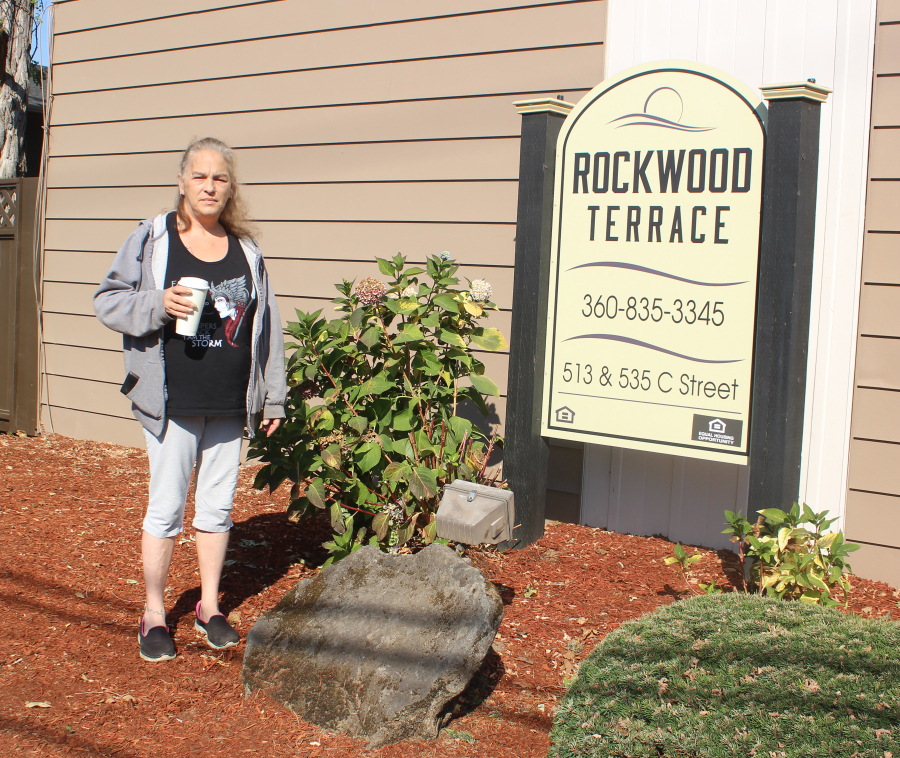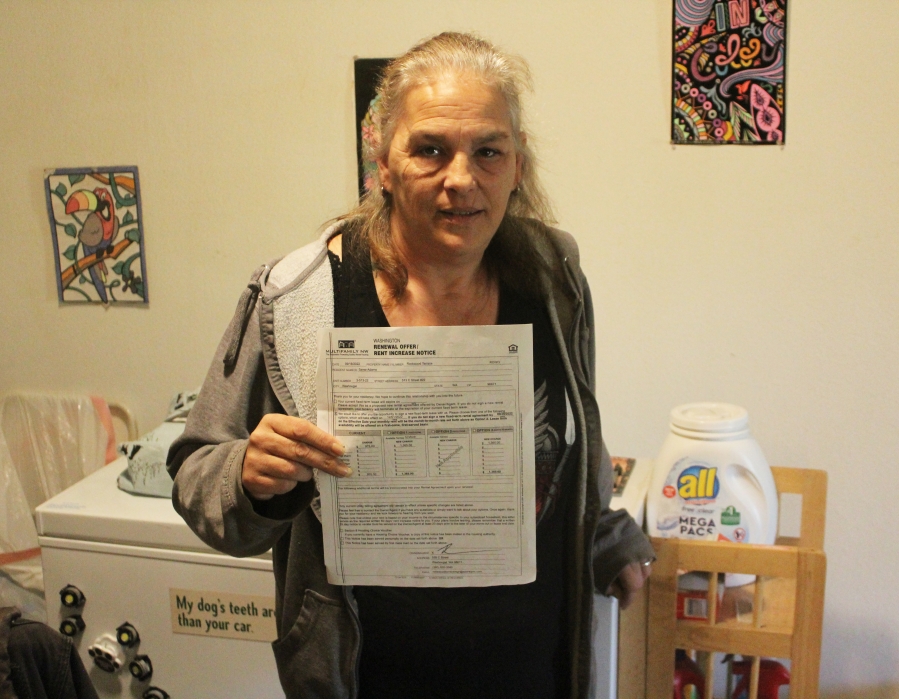Saree Adams has dealt with several serious medical conditions, including a brain aneurysm, during the course of her life, but she doesn’t have any cardiovascular issues that could have caused some significant problems on Thursday, Aug. 18, when she found a piece of paper taped to her front door that informed her that her monthly rent total was going to increase by almost $400.
“They’re lucky I don’t have a serious heart condition,” she told the Post-Record, “because I probably would’ve just dropped dead right there at the door.”
Adams is the de facto leader of a group of Rockwood Terrace Apartment tenants who are pushing back against the increase, which many of them simply can’t afford on their fixed incomes.
Adams said that the Washougal complex is designated as Section 42 low-income housing, a section of the Internal Revenue Service tax code that allows property owners to claim an annual tax credit when they set aside a certain number of units in an apartment building for low-income renters.
The nearly 40% rent hike is legal in Washington, which has no rent control.
“We have a major problem,” Adams said during a Washougal City Council meeting on Monday, Oct. 10. “Our landlord just dropped a $400 hike on all of us. We’ve got elderly, we’ve got disabled, we’ve got people who have cancer. One of my best friends in the complex has multiple sclerosis. A lot of people (have young children). I’d say 95% (of the residents) cannot pay this increase. There’s just no way. So as of Dec. 1, if none of us will be able to make rent, we will all be on the streets in Washougal.”





